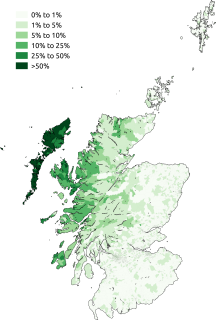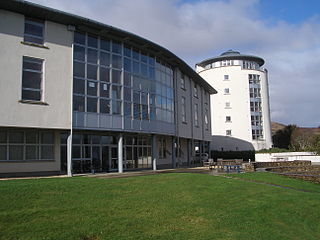Biography
He was born in North Bay, Ontario, and now resides in Ottawa. He published his first and second novels under the pseudonym Gillìosa Uaugh which has been subsequently been reprinted internationally under Gil Waugh.
In addition to being the author of two novels, Gil Waugh is also a poet, musician, pilot, Scottish Gaelic rights supporter and computer security and infrastructure consultant. He holds the I.S.P. CNP ITILF and CISSP professional designations and has authored non-fiction works in newspaper and various technical journals. During his technology career, he has worked as a software developer, network architect/administrator and security advisor. He has for many years been a believer in the potential of what is commonly referred to as Artificial Intelligence as a tool to improve software processes and quality of life.
Waugh had his first poems, a series of Haiku published in 1975. He integrates poetry into his novels and ties them to the plot.
Gil Waugh is classically trained on trumpet and for many years headed an Ottawa pickup jazz group named TWNJC. In the 1970s, he toured, recorded and performed on electric bass with several rock bands based in Ottawa and Toronto, Ontario, Canada. After TWNJC disbanded, he has focused composing and performing efforts on more traditionally rooted Celtic music and currently plays the Great Highland Bagpipe with The Sons of Scotland, Canada's oldest Civilian Pipe Band.
During the 1980s after completing Commercial Pilot training, Waugh became a licensed private investigator and successfully conducted roughly 800 missing person, criminal and Insurance Investigations. Learning and practicing the craft of private investigation provided a solid foundation for the techniques he writes about his Karen Simpson Sandalwood Investigation Agency series.
In 1997, Waugh co-founded and helped direct Mike Nemesvary's 'Round the World challenge, an international non-profit organization that focussed its efforts on raising the awareness of the abilities of those with disabilities. It culminated in Nemesvary becoming the first quadriplegic in history to circumnavigate the globe in a specially equipped vehicle and subsequently winning several high level accolades, including the Canadian Governor General Meritorious Service award. One of the motivators for this was a serious spinal cord injury that Waugh suffered in 1993 in Cancún, Mexico.
Waugh has appeared as a feature guest on Global Television's Mystery, Ink! And The Destiny Files and in 2002 was invited to Mexico City to present his written works as a keynote speaker at the University of Mexico's AMEC conference.
In 2009, Waugh co-founded Comunn Gàidhlig Ottawa, the Ottawa Gaelic Society in order to promote Scottish language, music and culture. Further to this, Waugh formed Ar n-Òran (our music) Gaelic choir which he directs and remains active in. Also in 2009, Waugh organized and held the first ever Mòd Canada event in Ottawa. Mòd Canada has gained international recognition and continues to grow in popularity as a venue of choice for domestic and international Scottish Gaelic competitors in language, vocal, instrumental and dramatic arts competitions.
Waugh launched "Gaoth," (Scottish Gaelic for "Wind" a graphic novel at Mòd Canada 2010, and continues quarterly releases of the novel. "Gaoth" features the artwork of illustrator Jay Nation.

Scottish Gaelic (Scottish Gaelic: Gàidhlig[ˈkaːlɪkʲ] or Scots Gaelic, sometimes referred to simply as Gaelic, is a Goidelic language native to the Gaels of Scotland. As a Goidelic language, Scottish Gaelic, as well as both Modern Irish and Manx, has developed out of Old Irish. It became a distinct spoken language sometime in the 13th century in the Middle Irish period, although a common literary language was shared by Gaels in both Ireland and Scotland down to the 16th century. Most of modern Scotland was once Gaelic-speaking, as evidenced especially by Gaelic-language place names.

The Royal National Mòd is the most important of several major Mòds that are held annually, mostly in Scotland. It is the main festival of Scottish Gaelic literature, song, arts and culture and one of the more notable peripatetic cultural festivals in Scotland. It is often referred to simply as the Mòd.

Bòrd na Gàidhlig is the executive non-departmental public body of the Scottish Government with responsibility for Gaelic. It was established in 2005 and is based in Inverness.

Sabhal Mòr Ostaig is a public higher education college situated in the Sleat peninsula in the south of the Isle of Skye, with an associate campus at Bowmore on the island of Islay, Ionad Chaluim Chille Ìle. Sabhal Mòr is an independent Academic Partner in the federal University of the Highlands and Islands. Uniquely, its sole medium of instruction on degree courses is Scottish Gaelic.

Canadian Gaelic or Cape Breton Gaelic, known in English as often simply Gaelic, is a collective term for the dialects of Scottish Gaelic spoken in Atlantic Canada.

Mill a h-Uile Rud is a Seattle-based band who sing in Scottish Gaelic.
Gaelic broadcasting in Scotland is a developing area of the media in Scotland which deals with broadcasts given in Scottish Gaelic and has important links with the efforts of Gaelic revival in Scotland. As well as being informative, Gaelic broadcasting in Scotland has acquired some symbolic importance. Whilst opinion polls show that the vast majority of Gaels feel they have been ill-served by broadcasting media, Scotland now has Gaelic broadcasting all over Scotland both on television and radio.

Ùr-sgeul is an independent publisher of new Scottish Gaelic prose. The name Ùr-sgeul is a Gaelic word which translates variously as: a romance, a novel or a recent tale.

Joy Dunlop is a Scottish broadcaster, singer, step dancer and educator from the village of Connel in Argyll, who now lives in Glasgow, Scotland. Singing predominantly in Scottish Gaelic, she performs folk music, song and dance in a contemporary style rooted in the tradition. She is a weather presenter for BBC Scotland and BBC ALBA.

Staffin is a district with the Gaelic name An Taobh Sear, which translates as "the East Side", on the northeast coast of the Trotternish peninsula of the island of Skye. It is located on the A855 road about 17 miles north of Portree and is overlooked by the Trotternish Ridge with the famous rock formations of The Storr and the Quiraing. The district comprises 23 townships made up of, from south to north, Rigg, Tote, Lealt, Lonfearn, Grealin, Breackry, Cul-nan-cnoc, Bhaltos, Raiseburgh, Ellishadder, Garafad, Clachan, Garros, Marrishader, Maligar, Stenscholl, Brogaig, Sartle, Glasphein, Digg, Dunan, Flodigarry and Greap. The Kilmartin River runs northwards through the village. From where it reaches the sea a rocky shore leads east to a slipway at An Corran. Here a local resident found a slab bearing a dinosaur track, probably made by a small ornithopod. Experts subsequently found more dinosaur prints of up to 50 cm, the largest found in Scotland, made by a creature similar to Megalosaurus. At about 160 million years old they are the youngest dinosaur remains to be found in Scotland.
Charles Fraser-Mackintosh was a Scottish lawyer, land developer, author and Liberal and Crofters Party politician. He was a significant champion of the Scottish Gaelic language in Victorian Britain.
Alexander Mackenzie, was a Scottish historian, author, magazine editor and politician. He was born on a croft, in Gairloch. He had little opportunity for education and initially earned his living as a labourer and ploughman. In 1861 he became apprenticed in the clothes trade selling Scottish cloth in Colchester. In 1869 he settled in Inverness, where he and his brother set up a clothes shop in Clach na Cudainn House. From his business premises he derived his nickname 'Clach na Cudainn' or simply 'Clach'. He later became an editor and publisher of the Celtic Magazine, and the Scottish Highlander. Mackenzie wrote numerous clan histories. He was a fellow of the Society of Antiquaries of Scotland. A founder member of the Gaelic Society of Inverness, Mackenzie was elected an 'Honorary Chieftain' in 1894.
Arthur Cormack is a Scottish Gaelic singer and musician from Portree, Isle of Skye and was educated at Portree High School.

Air Cuan Dubh Drilseach is a science fiction novel written in Scottish Gaelic by Tim Armstrong and published by CLÀR in 2013. Air Cuan Dubh Drilseach is the first hard science-fiction novel in Gaelic written for adults. The story combines elements of space opera, dark cyberpunk, romance and rock-band road-trip adventure. The central conceit of the novel is that in space, everyone speaks Gaelic, allowing the author to create an entirely Gaelic-speaking world for the characters.
'Catrìona Lexy Chaimbeul, also known as Catriona Lexy Campbell, is a Scottish poet, novelist, dramatist, and actor, working mainly in Scottish Gaelic.
Màiri MacPherson was a Scottish Gaelic poet from the Isle of Skye, whose work focused on the Highland Clearances and the land struggle. Although she could read her own work when written she could not write it in Gaelic. She retained her songs and poems in her memory until others wrote them down for publication. She often referred to herself as Màiri Nighean Iain Bhàin, the name by which she would have been known in the Skye of her childhood.
Marcas Mac an Tuairneir is a Scottish writer and singer. He writes and publishes in Scottish Gaelic and English.
Iain Moireach (27 March 1938 – 17 November 2018) was a Scottish Gaelic writer from Barvas, Isle of Lewis. He wrote poetry, screenplays, and short stories.

Fiùran is a female-fronted Canadian Celtic hard rock band based in Ottawa, Ontario, Canada known for writing, recording, and performing original and traditional songs in Scottish Gàidhlig and English using electric and traditional instruments fused into rock arrangements.











